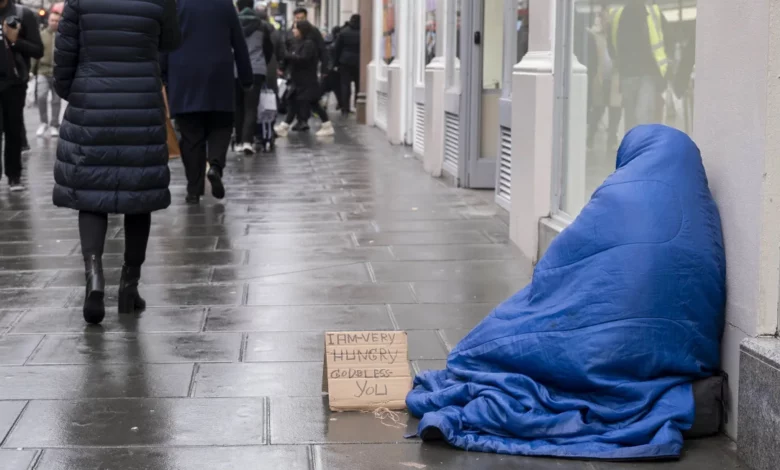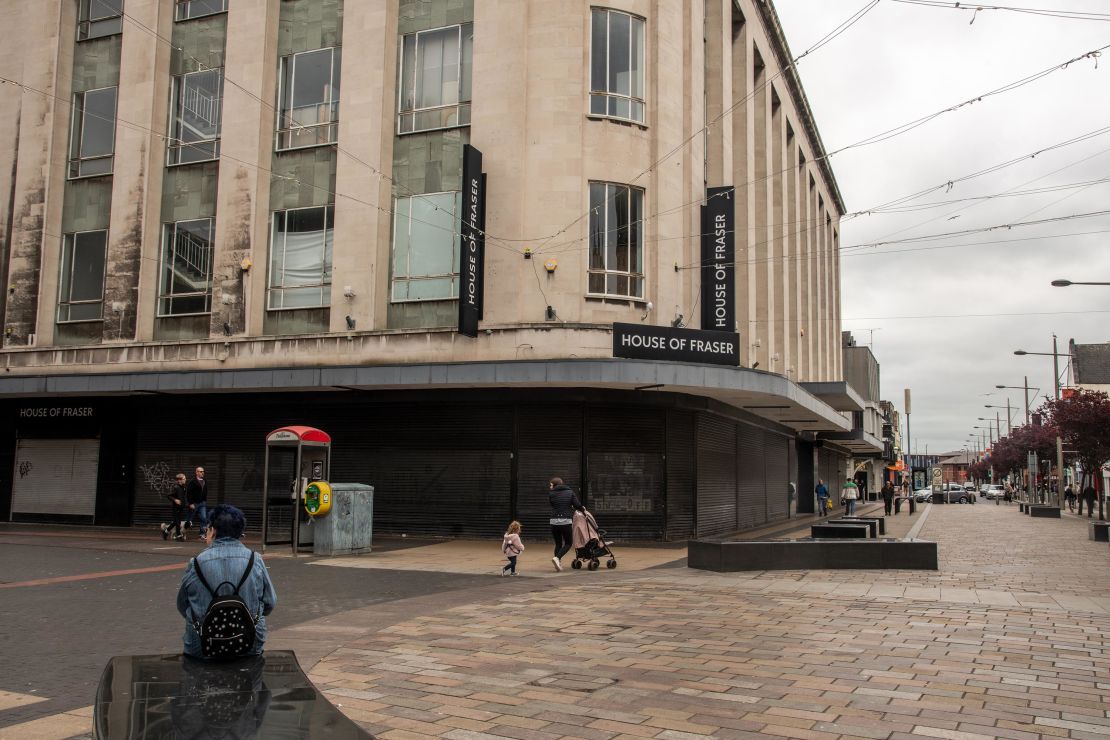
The grim conclusion about inequality in one of the world’s richest economies comes from the Centre for Social Justice, an independent think tank whose earlier work led to reform of Britain’s welfare system and the introduction of Universal Credit, a monthly government payment for people on low incomes.
The 300-page report, published Sunday, is the latest evidence of how the UK’s economic stagnation has made it much harder to tackle poverty, with a cost-of-living crisis exacerbating the hardship experienced by the least well-off in society.
“We have uncovered a nation of two halves,” Sophia Worringer, deputy policy director at the Centre for Social Justice, said Monday at an event launching the report.
“The general public for the most part can get by, and then there is this cohort of people whose lives are marked by family breakdown, physical and mental ill-health; who live in crime-ridden communities and experience multiple barriers to work.”
The think tank warns that the UK risks “sliding back into the two nations of the Victorian era, marked by a widening gulf between mainstream society and a… poverty-stricken underclass.”
The Victorian age, which covered the second half of the 19th century, was a time of extreme social inequality. The working class faced brutal living conditions, with little access to clean water, food and sanitation, and with very little opportunity to improve their lives.
The report finds that poverty is becoming similarly “entrenched” in modern Britain and argues that a lack of money is only one of several drivers of disadvantage. Family breakdown, addiction, joblessness, serious personal debt, and educational failure are cited as other key causes.

The study draws from a survey of 6,000 people, more than half of them from the poorest communities. The researchers also canvassed more than 350 small charities, social enterprises and experts, traveling to more than 20 towns and cities in the UK.
“For too many, Britain is broken and the gap between the haves and have-nots is in danger of becoming a chasm,” says the foreword to the report, signed by Mervyn King, a former Bank of England governor, among others.
It finds that average weekly wages in Britain have stagnated since the 2008 financial crisis, when adjusted for inflation. Wages at the bottom end remain low: as of September, 38% of people claiming Universal Credit are also in work, meaning that their earnings aren’t enough to get by.
Work is often insecure for these individuals and of poor quality, said Worringer. “The instability of the work available when compared to the stability of benefits makes the jump into work just not worth it for some.”
Pandemic lockdowns ‘catastrophic’
The report also finds that pandemic lockdowns exacerbated the key drivers of poverty and had a “catastrophic effect on the nation’s social fabric.”
During lockdowns, calls to domestic abuse helplines surged 700%; mental health problems in young people spread from one in nine to one in six; severe school absence jumped 134%; and 1.2 million more people received welfare payments, according to the report.
Deaths from alcohol poisoning, which had been dropping before the pandemic, have also risen since the mass outbreak of Covid-19.
“Those who are left behind are still reeling from the impact of the Covid-19 pandemic,” said Worringer. “Life for them never returned to normal and the scars of that time are still very deeply felt.”
If current trends continue, more than a quarter of children between the ages of five and 15 will have a mental health disorder by 2030. If the pandemic and associated lockdowns had never happened, this share would be less than a fifth, according to the report.
The authors of the report will lay out “an ambitious suite of policy recommendations” next spring to tackle “the root causes of poverty,” Worringer said. Without a strategy to do so, “our future is looking very poor,” she added.
Separately, a report published last week by the Resolution Foundation, a think tank, found that income inequality is higher in Britain than in any other large European country. The report said a “toxic combination of slow growth and high inequality was straining the living standards of low- and middle-income Britain well before the cost-of-living crisis struck.”
That report found that inflation-adjusted wages in Britain had flatlined since 2007, costing the average worker £10,700 ($13,500) per year in lost pay growth.




